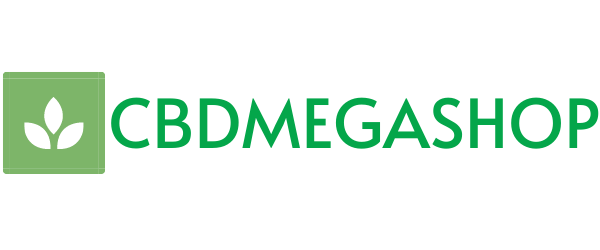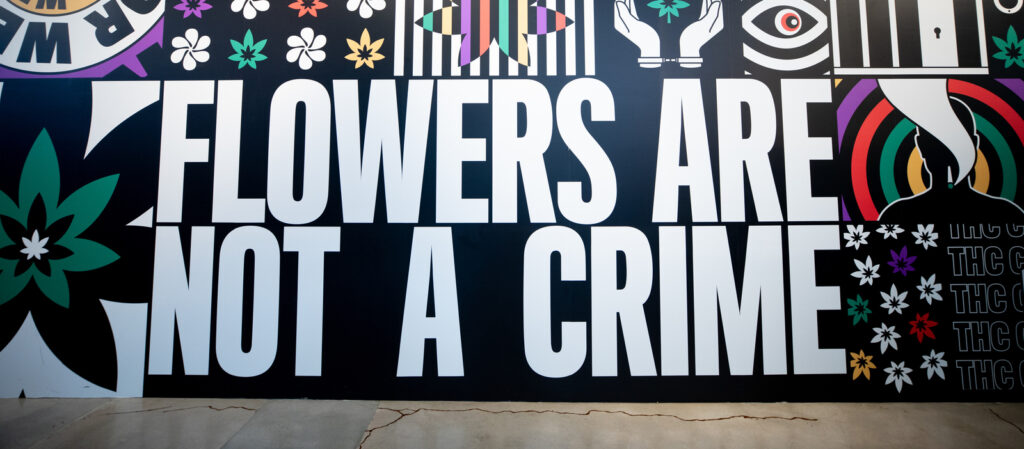Blog, CBD Guides, CBD News, CBD Oil, CBD Vape Juice
A primer on the War on Drugs
On July 17, 2014, Eric Garner was detained in Staten Island, New York, on uncertainty of unlawfully offering cigarettes. An detaining policeman put the unarmed 43-year-old right into a chokehold, although that the NYPD prohibited this kind of restriction in 1993. Garner ultimately passed away of suffocation as well as his fatality was ruled a murder, though a grand court picked not to prosecute the detaining policeman.
Eric Garner’s terrible fatality triggered protest throughout the United States as well as mass objections occurred. As lots of Americans have actually discovered ever since, Garner’s murder by authorities had not been a separated event and even an unusual event. It was the straight outcome of techniques as well as plans that were developed to target Black Americans as well as stabilized by the battle on medications.
To start to fix the damages that’s been done, we initially require to comprehend just how we obtained where we are today. Here you’ll discover a quick background of the battle on medications, instances of contemporary effects, as well as devices for obtaining associated with the defend justice.
What is the battle on medications?
The battle on medications is an umbrella term for the United States federal government’s war the controlled substance profession. In concept, the battle on medications was developed to fight substance abuse as well as trafficking. In technique, the project has actually done even more injury than great, specifically when it come to bolstering racial inequality.

A quick timeline of the battle on medications
1970s
To comprehend the modern effects of racist anti-drug plans, we need to go back to June 1971 when the battle on medications started. It remained in June of 1971 that President Richard Nixon proclaimed substance abuse to be “public opponent number one.” Shortly hereafter affirmation, Nixon raised government financing to combat recently produced medicine criminal activities. He after that developed the Drug Enforcement Administration (DEA) in 1973. The DEA manages regulations on all medications, consisting of cannabis, which is still categorized as a Schedule I regulated compound together with heroin as well as meth.
In 1994, Nixon’s consultant, John Ehrlichman, exposed that the previous head of state’s genuine “public opponent number one” had not been illegal medications, however Black individuals as well as anti-war liberals. As Ehrlichman confessed to reporter Dan Baum, “The Nixon project in 1968, as well as the Nixon White House afterwards, had 2 adversaries: the antiwar left as well as black individuals. You comprehend what I’m stating? We recognized we could not make it prohibited to be either versus the [Vietnam] battle or black, however by obtaining the general public to connect the hippies with cannabis as well as blacks with heroin, and after that outlawing both greatly, we might interfere with those neighborhoods. We might apprehend their leaders, invade their residences, separate their conferences, as well as damn them night after evening on the night information. Did we understand we were existing regarding the medications? Of training course we did.”
1980s
Ronald Reagan worked as the head of state for practically the whole years, as well as his hostile reforms brought about unmatched degrees of imprisonment for non-violent medicine culprits– specifically those from minority neighborhoods. When the schoolchildren of the 1980s listened to First Lady Nancy Reagan cry “Just state no!” to medications, they had no concept that this motto became part of a bigger initiative to place an out of proportion variety of Black Americans behind bars.
Individuals founded guilty for split trafficking offenses were extremely Black in the 1980s. Black individuals still represent 83% of those founded guilty for split trafficking, according to a 2015 Drug as well as Alcohol Dependence record entitled “Powder Cocaine as well as Crack Use in the United States: An Examination of Risk for Arrest as well as Socioeconomic Disparities in Use.”
After the Anti-Drug Abuse Act of 1986 was passed, these people were unexpectedly based on necessary minimum jail sentences. These sentences were much harsher than those provided to the medicine culprits that made use of powder drug as well as were most likely to be white. For instance, having simply 5 grams of split drug causes an automated jail sentence of 5 years. Meanwhile, it takes 500 grams of powder drug to obtain that exact same sentence.
This sentencing inconsistency just makes good sense if your objective is to worsen racial inequalities given that, according to the Drug Policy Alliance, “There are no medicinal distinctions in between powder drug as well as split drug.”
1990s
The zero-tolerance plans as well as severe charges of the 1980s rollovered right into the last years of the 20th century. President Bill Clinton mostly complied with the criterion of Reagan’s management, especially declining a United States Sentencing Commission referral to close the imprisonment space in between split as well as drug customers, as reported by the LA Times in 1995.
By the millenium, in 1999, the Human Rights Watch reported that Black Americans were most likely than any type of various other race to be detained for medicine offenses, punished for medicine offenses, as well as penalized to the toughest degree of the legislation. In the late 1990s in Illinois as well as Maryland, 90% of people sent out to state jail on medicine fees were Black, a figure the civil liberties company considered worrying.

The Human Rights Watch specified, “The overmuch high percent of blacks amongst those confessed to state jail on medicine fees is peril. But the difference in the prices at which black as well as white guys over the age of eighteen are sentenced on medicine fees is absolutely nothing except a nationwide detraction.”
2000 to 2010
As the 21st century dawned, President George W. Bush took workplace as well as alloted even more cash than ever before to salary the battle on medications, according to theDrug Policy Alliance He’s likewise mostly in charge of the militarization of law enforcement agency throughout the nation. By the moment Bush tipped down from workplace, the variety of paramilitary SWAT raids on Americans thought of controlled substance usage had actually reached 40,000 yearly. Mind you, SWAT groups were initially produced to take care of captive scenarios as well as sniper capturings— not low-level medicine offenses.
2010 to 2020
During his 2 terms in workplace, President Barack Obama approved 1,715 sentence commutations to pacifist medicine culprits. He provided greater than 300 of those commutations on his last complete day in workplace on January 19, 2017, according to a write-up released in theWashington Post
In the post, after that-Deputy Attorney General Sally Q. Yates, shared, “By bring back symmetry to needlessly lengthy medicine sentences, this management has actually made a long-term effect on our criminal justice system.” In truth, the Obama management approved extra clemencies than the previous 12 managements incorporated. More than 500 of the people Obama absolved would certainly have offered life behind bars.
Since Obama’s presidency finished, cannabis reform has actually gotten energy throughout the nation with lots of states electing to legalize leisure use the plant as well as legislate clinical marijuana. However, the Drug Policy Alliance reports that regardless of this progression, majority a million people continue to be behind bars for marijuana-related offenses, 90% of which engaged non-violent belongings.
President Trump is understood to sustain the execution for medicine offenses as well as has actually commended globe leaders that have actually utilized this severe technique as component of their very own anti-drug initiatives. Trump has actually likewise pledged to increase down on anti-drug initiatives also in the center of the COVID-19 pandemic, choosing to assign safety equipment to soldiers combating the medicine battle as opposed to important health care employees.
How does the battle on medications impact culture today?
The battle on medications offered law enforcement agent the capability to racially profile, quit as well as check, fatally fire suspects, as well as basically stomp our civil liberties without repercussion– all for extremely little progression when it involves decreasing substance abuse.
As an outcome, the battle on medications remains to ravage neighborhoods of shade as we go into the 3rd years of the 21st century. Racial variations remain to intensify today as Black American guys often get jail sentences that are 20% longer than those of white guys that dedicated the exact same criminal activity, according to a 2017 record released by theUnited States Sentencing Commission
In 2016, regardless of expanding legalisation initiatives, greater than 500,000 individuals in the United States were detained for marijuana-related criminal activities, as reported by the Center forAmerican Progress The company even more specified that Black Americans are 4 times most likely to be detained for cannabis belongings than white people, although both racial teams make use of marijuana at equivalent prices.
According to a record released in the American Journal of Public Health, authorities created 8% of the grown-up male murders that took place from 2012 to 2018. In that time, United States law enforcement agent eliminated greater than 1,000 guys yearly or 3 guys each day typically. This information likewise reveals that Black guys are 3 times most likely to pass away by authorities than white guys.
How can I defend justice in the battle on medications?
There are many companies functioning to fight these oppressions, as well as you have the power to obtain included. Here are 3 respectable companies to sign up with pressures with if you wish to tip up for justice:
- American Civil Liberties Union (ACLU): For 100 years, the ACLU has actually been combating to shield the civil liberties of every American resident. The company has actually been specifically singing regarding the inequalities of the battle on medications. You can register for the ACLU e-mail listing to remain notified, make a contribution, or subscribe to be a volunteer Website: https://www.aclu.org/
- Drug Policy Alliance: Founded in 2000, this New York City- based charitable is doing its component to shield individuals put behind bars for medicine offenses throughout the COVID-19 pandemic. You can authorize a request if you’re for passing the HEROES Act, which would certainly assist one of the most at risk people put behind bars for medicine offenses get very early launch from jail. You can likewise register for activity signals, figure out just how to call your regional authorities, as well as look for publications as well as garments to sustain the reason. Website: https://www.drugpolicy.org/
- National Association for the Advancement of Colored People (NAACP): One of one of the most reputable civil liberties companies in the United States, the NAACP was established in 1909 by a team of stars consisting of Black American author as well as sociologist W.E.B.Du Bois You can come to be a participant of the NAACP, acquisition a present subscription for an enjoyed one, or subscribe to volunteer as well as urge citizens in your area to cast their tallies in upcoming political elections. Website: https://www.naacp.org/
The influence of the battle on medications has actually been significant, from the mass imprisonment of Black Americans to petty apprehensions with terrible effects. The just means we can wish to turn around the damages done by racist plans is to maintain ourselves notified as well as remain to resist with collective, continual activity.

